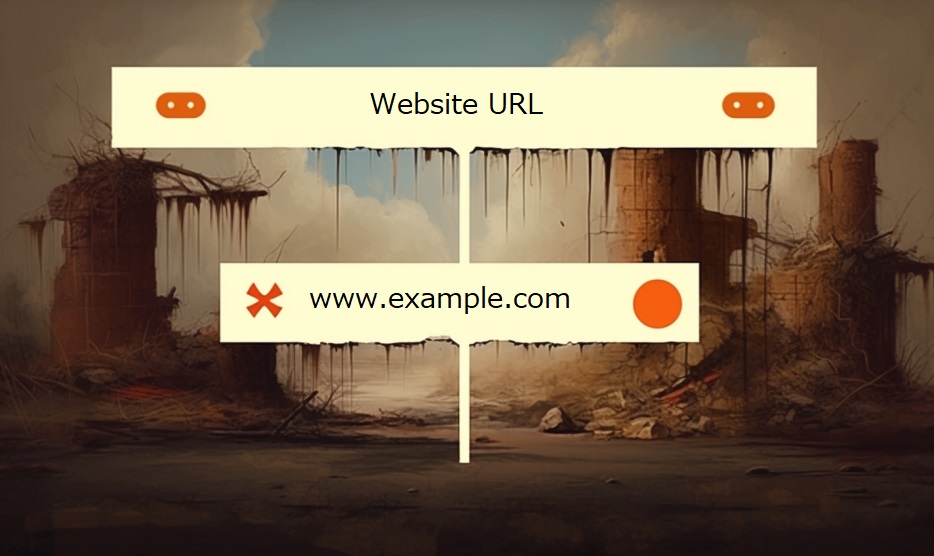The Importance of SEO-friendly URLs
As search engine algorithms evolve, every element of a webpage, from its content to its URL, plays a part in determining its rank on search engine results pages (SERPs). URLs may not seem like a significant factor in SEO, but they hold much more importance than one might imagine.
SEO-friendly URLs are designed to meet the needs of users and searchers. URLs that are short, descriptive, and relevant can significantly impact a website’s visibility, usability, and click-through rates. Effective URLs can also improve the process of crawling and indexing by search engines.

The Basics of URL Structure
Before diving into the specifics of creating SEO-friendly URLs, it’s essential to understand the basic structure of a URL. A URL typically consists of a protocol (https://), domain name (www.example.com), and path (/blog/seo-guide).
Understanding this structure is key to optimizing URLs. Each part of a URL provides a unique opportunity to enhance visibility and searchability, contributing to the overall effectiveness of an SEO strategy.
Keyword Use in URLs
Including relevant keywords in your URLs can be beneficial for your SEO efforts. Search engines look at the words in a URL to get a clue about the content on the page, making it essential to use keywords strategically.
However, keyword stuffing should be avoided as it can lead to penalties from search engines. It’s better to include one or two keywords that accurately reflect the content of the page.
Readability and Simplicity
The best URLs are simple and easy to read. This doesn’t just benefit users, but also search engines, which interpret URLs to understand the page’s content. Using simple, straightforward language in URLs can improve user experience and contribute to better search rankings.
Moreover, clean and concise URLs are more shareable. Whether verbally or through text, a simple URL is easier to communicate and more likely to be correctly remembered and typed by users.
Utilizing Hyphens and Underscores
Hyphens and underscores are two common ways to separate words in a URL. Both are recognized by search engines as word separators, but hyphens are generally preferred.
The use of hyphens in URLs is a best practice for SEO because they are recognized by all search engines, including Google, as word separators. This can enhance the readability of URLs and improve the precision of search results.
Avoiding Dynamic and Irrelevant Parameters
Dynamic parameters in URLs can complicate how search engines understand and index your pages. If possible, avoid using URLs with irrelevant parameters, such as session IDs, as they do not provide valuable information about the page’s content.
Instead, aim for static URLs with meaningful keywords. Static URLs are typically more user-friendly and SEO-friendly, as they are easy to read and accurately represent the page’s content.
The Role of URL Length
When it comes to SEO, shorter URLs are generally better. Research suggests that shorter URLs tend to rank higher on Google’s first page. However, the correlation between URL length and ranking does not necessarily imply causation.
While there is no definitive answer to how long a URL should be, the key lies in striking a balance. URLs should be long enough to include necessary keywords and accurately represent the page’s content, but not so long that they become difficult to remember or share.
The Importance of Consistent URL Structure
Consistency in URL structure across a website is crucial for optimal SEO. A consistent structure makes a site easier to navigate for users and easier to crawl for search engines.
A consistent URL structure can also help to establish a site’s hierarchy, providing search engines with additional context about a page’s position within the site. This, in turn, can improve how your site is indexed and how your pages rank in search results.
Utilizing HTTPS for Security
HTTPS, the secure version of HTTP, is another important factor for SEO-friendly URLs. Google has confirmed that HTTPS is a ranking signal, so migrating from HTTP to HTTPS can give your site a minor ranking boost.
In addition to the SEO benefits, HTTPS also offers improved security and builds trust with users. Users are more likely to trust and interact with sites that protect their information, leading to higher engagement and potentially improved rankings.
Canonicalizing Duplicate Content
In cases where duplicate content is unavoidable, it’s crucial to tell search engines which version of a URL to prioritize. This is where canonical URLs come in.
By specifying a canonical URL, you can prevent “duplicate content” issues and help search engines understand which version of a page they should index and rank. This can improve your site’s SEO and ensure that users are directed to the correct version of a page.
RiseOpp’s Approach to SEO-friendly URLs
At RiseOpp, we understand the importance of every aspect of SEO, including URL optimization. Our proprietary Heavy SEO methodology, based on more than 200 main algorithm factors, includes a strong focus on creating SEO-friendly URLs.
We believe that URLs, when optimized correctly, can significantly contribute to the overall success of an SEO strategy. This involves careful consideration of factors like keywords, readability, URL structure, security, and more, to ensure that every URL enhances the visibility and usability of a website.

The Art of Crafting SEO-friendly URLs
Creating SEO-friendly URLs is an art that requires a strategic blend of user-centered design and search engine optimization. From the inclusion of relevant keywords to the application of a consistent URL structure, every decision should aim to enhance user experience and improve search visibility.
Remember that while URLs play a part in SEO, they’re just one piece of the puzzle. A successful SEO strategy should be comprehensive, encompassing all aspects of a website. At RiseOpp, we’re committed to this holistic approach, using our Heavy SEO methodology to create SEO strategies that drive results and stand the test of time.
Comments are closed